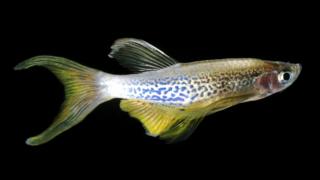Researchers have invented a DNA "tape recorder" that can trace the family history of every cell in an organism. The technique is being hailed as a breakthrough in understanding how the trillions of complex cells in a body are descended from a single egg. "It has the potential to provide profound insights into how normal, diseased or damaged tissues are constructed and maintained," one UK biologist told the BBC. The work appears in Science journal. The human body has around 40 trillion cells, each with a highly specialised function. Yet each can trace its history back to the same starting point - a fertilised egg.
Developmental biology is the business of unravelling how the genetic code unfolds at each cycle of cell division, how the body plan develops, and how tissues become specialised. But much of what it has revealed has depended on inference rather than a complete cell-by-cell history. "I actually started working on this problem as a graduate student in 2000," confessed Jay Shendure, lead researcher on the new scientific paper. "Could we find a way to record these relationships between cells in some compact form we could later read out in adult organisms?"

Zebrafish
Overcoming failure
The project failed then because there was no mechanism to record events in a cell's history. That changed with recent developments in so called CRISPR gene editing, a technique that allows researchers to make much more precise alterations to the DNA in living organisms. The molecular tape recorder developed by Prof Shendure's team at the University of Washington in Seattle, US, is a length of DNA inserted into the genome that contains a series of edit points which can be changed throughout an organism's life. Each edit records a permanent mark on the tape that is inherited by all of a cell's descendants. By examining the number and pattern of all these marks in an adult cell, the team can work back to find its origins.
Developmental biologist James Briscoe of the Crick Institute, in London, UK, calls it "a creative and exciting use" of the CRISPR technique. "It uniquely and indelibly marks cells with a 'barcode' that is inherited in the DNA. This means you can use the barcode to trace all the progeny of barcoded cells," he said. Jay Shendure collaborated with molecular biologist Alex Schier of Harvard University to prove the technique on a classic lab organism - the zebrafish. Not only did they show the technique works, they could trace the lineage of hundreds of thousands of cells in mature fish. They also showed it has the power to change perceptions about biological development.
MORE


 The Science, Health, and Technology Room
The Science, Health, and Technology Room


 Reply With Quote
Reply With Quote



